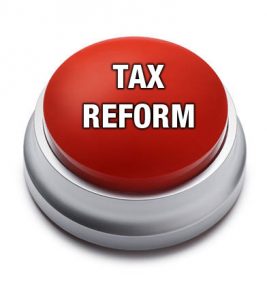 The U.S. Congressional tax reform plan is still evolving and its effects are still under analysis. Yet it is already easy to take a stand against the bill form a high level analysis of public policy principles as outlined in #1 to #5 below. Objections to specific effects on taxpayers are listed starting at #6. These are the provisions most likely to change. This is what we have so far:
The U.S. Congressional tax reform plan is still evolving and its effects are still under analysis. Yet it is already easy to take a stand against the bill form a high level analysis of public policy principles as outlined in #1 to #5 below. Objections to specific effects on taxpayers are listed starting at #6. These are the provisions most likely to change. This is what we have so far:
1. More than anything else this is a tax cut for the rich – those in the top 1% – at a time when about 70% of Americans convincingly say in many polls that they don’t want to give a tax break to the rich. There is more than ample analysis that shows how the tax reform bill cuts taxes for the very wealthiest. There is more than overwhelming evidence that the majority of Americans don’t support this approach.
2. Our economy is booming. Tax cuts are best used in a time of economic recession to stimulate the economy. There is no economic argument to be made for a tax cut at this time. The promoters say that that the current tax code is broken and is choking America. Where is the evidence for this? If this were true we would expect to see America’s wealth stagnant or declining. That’s not the case. America’s economy is booming and the rate of growth in wealth is as strong as ever.
3. Even many the rich who have voiced an opinion aren’t clamoring for a tax cut. Many of those in the highest level of income and wealth plainly state that they don’t need or deserve a tax cut. The rich are doing quite fine, thank you very much, and don’t need the American people to give them a tax break.
4. The best reason our political leadership offers for pushing the tax reform bill is “This is what we said we would do”. This isn’t a good enough reason. We deserve an economically based justification got such an important issue and not a political reason for the new law. Some say that it is important for the new president to achieve some significant tangible sign of progress with the legislature. Even if that is true, it shouldn’t be with this lousy tax bill that hurts the nation.
5. Simple is not necessarily better. Our economy is complex so it is understandable that our tax system is also complex. No evidence has been provided by the bill’s promoters that simple is better in any way.
6. Fewer tax brackets means a less fair tax system, especially for working class people who are moved into a higher tax bracket by this reform. Over time, after the short term tax gimmicks are removed from this proposal. most taxpayers will pay more under this reform plan.
7. It means an increase in self-employed taxes for many self-employed people with S corporations. The proposal disallows the lower corporate tax rate for service businesses and increases self-employment taxes for many small businesses.
8. Having the federal government tax income that you used to pay other state, local and property taxes is just wrong. Paying taxes on top of taxes will have negative psychological and economic effects on the nation.
9. The reform law is projected to have the effect of decreasing the size of charitable contributions an thereby hurting charitable organizations.
10. Elimination of second home interest specially hurts those upwardly mobile people (Our best and brightest) who are stretching to afford a level of affluence. It hurts the real estate markets along the shore and hurts the home building industry.
11. After years of encouraging electronic filing and computer-calculated results, encouraging the use of a manual post card is a step in the wrong direction.
12. The adjustments in the reform bill made on 11/6/2017 after the bill’s introduction make the future tax savings more of a mirage. Adjustments each year have the impact of raising future taxes.
13. Elimination of renewable energy credits sends us in the wrong direction on world energy policy. This is a critical time since China is poised to make the necessary investment to become the world leader in clean electric power and vehicles.
14. Elimination of student loan interest deduction effectively increases the net cost advanced education at a time when investment in education in engineering, technology and sciences is so badly needed.
15. The rules as written for pass-through entities (sole proprietorships, partnerships, LLCs and S corporations) do not help reduce the taxes for most small businesses. That’s why the NFIB opposes the bill.
16. Expanding the Section 179 write-off allowance does not help small businesses but gives an additional tax break to larger businesses.
17. The bill substantially lowers the taxes of large successful corporations like 3M. Corporations already pay a significantly smaller portion of the nation’s total taxes than at any previous time in our lives. American voters do not want to lower the taxes of large corporations, according to consistent and reliable poll results.
18. Elimination of estate tax for the largest estates serves no positive purpose to society.
The list of objections could go on. As more flaws emerged, I simply didn’t feel that amending the title from “18” to some larger number would serve any useful purpose. Yet this tax bill is not made up of all bad ideas. See another article titled “2 reasons to support the tax reform bill“.

Leave a Reply